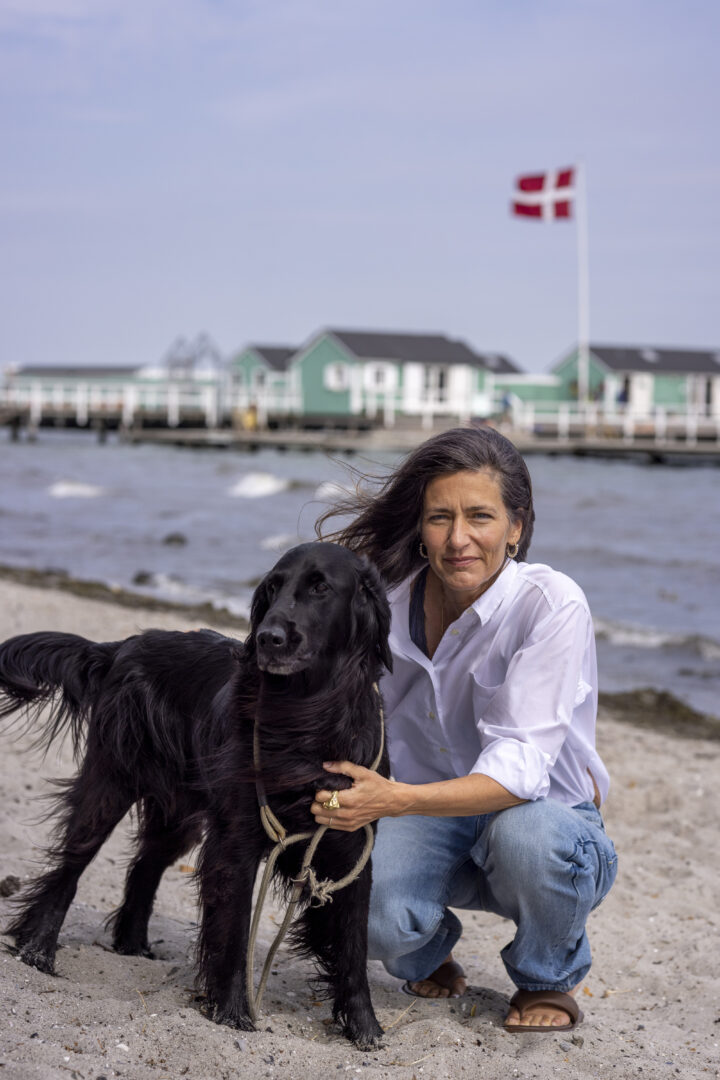
All course participants at the MBA in IMD are taken to the mountains at some point for an exercise. When Barbara Scheel Agersnap and her cohort arrived, one of her colleagues had some useful intelligence: the exercise was the same as the year before, and the group could use this information to put together a solution, good enough to present to faculty, relatively quickly. This would leave more time to go skiing.
As they were completing their presentation, however, one member became dissatisfied. He stood up and said to the others: “Seriously. We can do better than this.” There was silence. Initially, he was not very popular, but as Barbara observes:
“What he did was he raised the bar … We ended up changing it completely. We didn’t have one minute of spare time. That one classmate could actually point us in a new direction and say: Really? And then change the whole thing and we delivered something so much better. That set the tone for the entire year.”
The presentation involved a large-scale interactive demonstration for faculty to walk through – Barbara recalls her own miniscule task of flattening an area of snow that should serve as a plateau, but together the group delivered quite an event. They felt both bonded and empowered. They had envisioned and delivered something different, and felt that they were “Changing the rules of the game”.
Two decades later, this phrase was still the slogan for the Class of 2001, printed onto some celebratory hoodies made to commemorate the group’s 20th anniversary.
Three years after graduating, she helped change the rules of the game in an altogether more serious way – to enhance security in maritime transport. The early years of her career had been at Maersk, the shipping and logistics giant, and in response to the 9/11 terrorist attacks in 2001, she began considering the risk for the container industry.
She worked with a software specialist to develop a solution that would detect suspicious or unusual activity, of either passengers or cargo items, and pick up other irregularities. Their startup, launched in 2004, did not scale to become a unicorn yet it had considerable influence. The conceptual breakthrough attracted the attention of national intelligence agencies who started visiting her and her colleagues, asking for insights into the thinking and the technology. It became a case of them saying to her and her co-founders: “We will take it from here.”
For obvious reasons she cannot elaborate in any detail, but there is little doubt that the contribution was significant. “The personal learning was, from studying an issue, a real problem … to what can I do about this? And finding the tools to create a solution.”
By this stage of her career, she had a young family, and opted for freelance consulting projects, as well as helping to set up a low-cost container company, as her husband’s work in UN disaster relief involved considerable travel.
Then an opportunity arose to head the Innovation Center for Denmark in Shanghai… She held the post for three years. The family relocated to China, and found it a culturally rich and fascinating experience.
Returning to Denmark in 2015, she was appointed deputy CEO at Copenhagen Malmö Port, and promoted to CEO two years later. IMD training informs the role in many ways. While much of the learning is around personal leadership and building teams, the technical guidance is equally valuable. Becoming financially literate is highly prized. She says:
“Still today finance and accounting, are probably some of the things that I’ve benefited the most from … in the sense that working with the numbers opened new doors and offered new perspectives.”
Of the softer learnings, the ability to seek and harness the talents of the wider team is also valuable – hence the anecdote about the groupwork in the snow. “There are always smarter people. You just have to make sure you are around them, and you actually go talk to them. And ask them the right questions. To make sure that we as a group or a company deliver as well as we can.”
A growing priority for the port is environmental responsibility. It is on course to be carbon-neutral by 2025 in terms of its own activities, and has, for example, partnered with waste-to-energy companies to engage in carbon capturing and storage, and help develop clean fuels for the transport sector.
“There’s one planet and we must make that change and that’s our responsibility. If you’re a leader today you need to be part of this.”
Changing the rules of the game, from transport security to a cleaner world, can be worth the effort. And ultimately more rewarding than half a day’s skiing.
